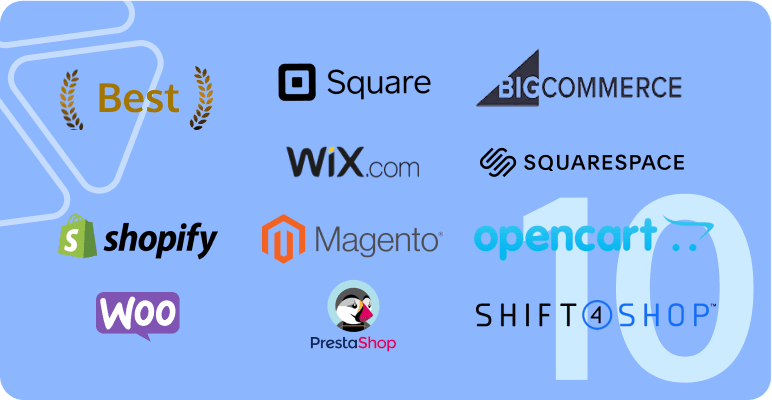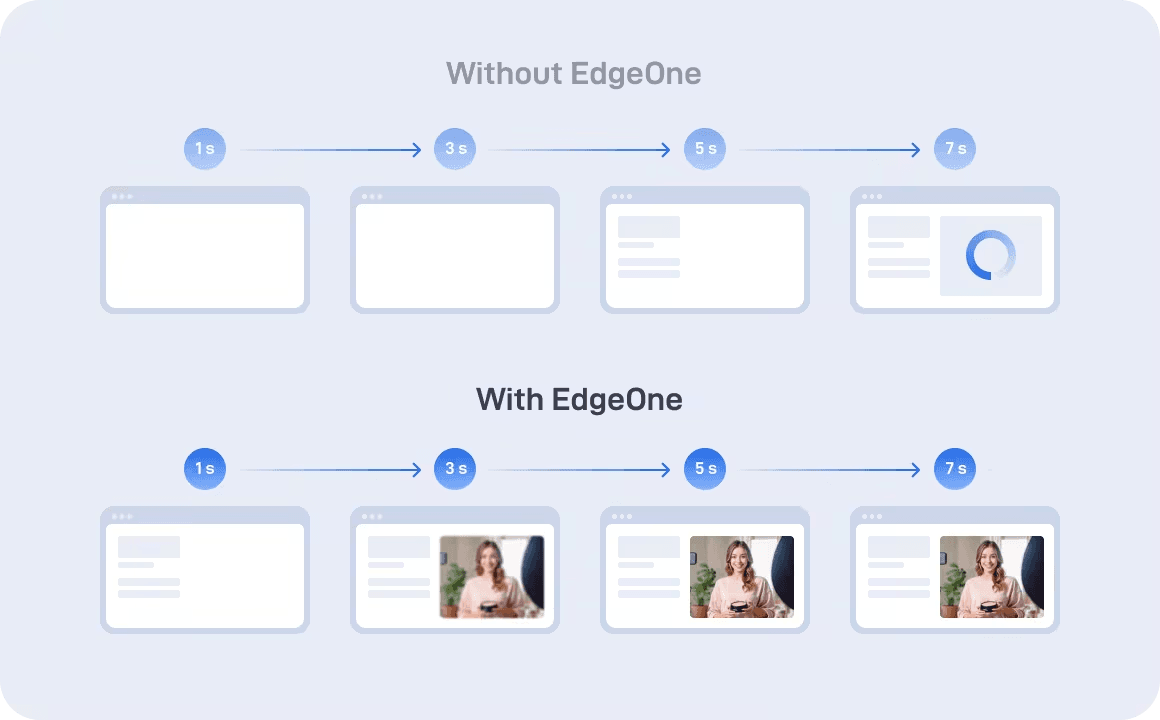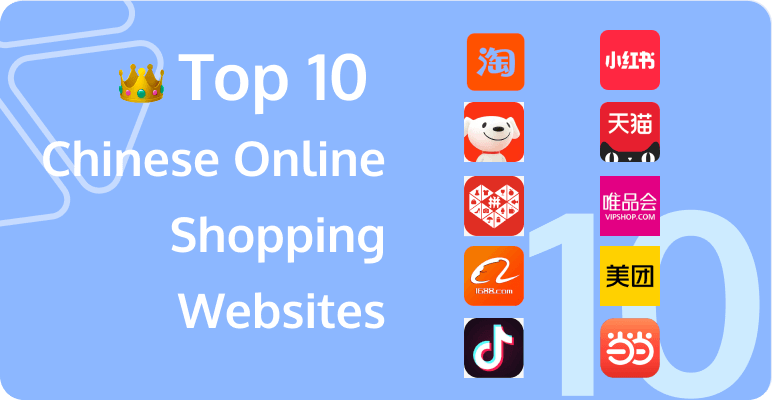10 Best E-commerce Platforms for Your Business in 2024
What is an E-commerce platform?
An e-commerce platform is a software application that enables businesses to create and manage online stores. These platforms provide businesses with the tools they need to build and customize an online store, manage inventory, process payments, and fulfill orders. E-commerce platforms can be hosted on the cloud or on-premises, and they can be open-source or proprietary.
E-commerce platforms typically offer a range of features and tools to help businesses build and customize their online store. These features may include:
1. Website builder: A website builder is a tool that allows businesses to create a website without needing to know how to code. E-commerce platforms often include a drag-and-drop website builder that makes it easy for businesses to create a professional-looking online store.
2. Payment processing: E-commerce platforms typically include payment processing tools that allow businesses to accept credit card payments, PayPal, and other payment methods.
3. Inventory management: E-commerce platforms allow businesses to manage their inventory, track stock levels, and receive alerts when inventory levels are low.
4. Shipping and fulfillment: E-commerce platforms often include tools that help businesses manage shipping and fulfillment, including printing shipping labels and tracking packages.
5. Marketing and SEO: E-commerce platforms may include marketing and SEO tools to help businesses promote their online store and improve their search engine rankings.
6. Security: E-commerce platforms typically include security features to protect customer data and prevent fraud.
Popular e-commerce platforms include Shopify, WooCommerce, Magento, and BigCommerce. Businesses can choose the platform that best meets their needs based on factors such as budget, business size, ease of use, customization, features, support, and integration with other tools and software.
How to Choose the Right E-commerce Website Building Platform for Your Online Store?
Choosing the right e-commerce website building platform for your online store can be a daunting task. Here are some factors to consider when making your decision:
1. Budget: Consider the cost of the platform and any additional fees, such as transaction fees or hosting fees.
2. Business size: Consider the size of your business and the scale of your operations. Some platforms are better suited for small businesses, while others are better suited for larger enterprises.
3. Ease of use: Consider the ease of use of the platform and whether it offers a user-friendly interface. This is especially important if you don't have a lot of technical expertise.
4. Customization: Consider the level of customization that the platform offers. You want to be able to create a unique online shopping experience for your customers.
5. Features: Consider the features that the platform offers, such as payment processing, inventory management, and shipping options.
6. Support: Consider the level of support that the platform offers. You want to make sure that you have access to help and support if you run into any issues.
7. Integration: Consider whether the platform integrates with other tools and software that you use, such as accounting software or email marketing tools.

10 Best E-commerce Platforms
1. Shopify
Shopify is a cloud-based e-commerce platform that has become one of the most popular e-commerce platforms in the world. It provides businesses with the tools they need to create and manage an online store. Shopify is known for its user-friendly interface, extensive customization options, and a variety of built-in features.
Advantages:
- Easy to use, even for those without technical expertise
- Offers a wide range of customization options
- Provides a variety of built-in features, including payment processing and inventory management
2. WooCommerce
WooCommerce is a plugin for WordPress that allows businesses to create and manage an online store. It's free to use and offers a high level of customization, making it a popular choice for businesses that want complete control over their online store.
Advantages:
- Free to use
- Offers a wide range of plugins and extensions
- Integrates with WordPress, making it easy to manage content and products in one place
3. Magento
Magento is an open-source platform that offers a high level of complexity and customization, making it best for large businesses. It's highly scalable and can handle a large volume of products and transactions.
Advantages:
- Highly customizable
- Offers a wide range of features, including payment processing and inventory management
- Offers a large community of developers and users for support
4. BigCommerce
BigCommerce is a versatile e-commerce platform that offers a variety of built-in features and customization options. It's known for its ease of use and scalability, making it a popular choice for businesses of all sizes.
Advantages:
- Easy to use, even for those without technical expertise
- Offers a wide range of customization options
- Provides a variety of built-in features, including payment processing and inventory management
5. Wix eCommerce
Wix eCommerce is a popular e-commerce platform known for its simplicity and ease of use. It's perfect for small businesses or startups. It offers a variety of templates and customization options, allowing businesses to create a professional-looking online store quickly.
Advantages:
- Easy to use, even for those without technical expertise
- Offers a variety of templates and customization options
- Provides a variety of built-in features, including payment processing and inventory management
6. Squarespace
Squarespace is a popular e-commerce platform known for its beautiful, professionally designed themes. It's a popular choice for businesses that value aesthetics and want to create a visually stunning online store.
Advantages:
- Beautiful, professionally designed themes
- Easy to use, even for those without technical expertise
- Provides a variety of built-in features, including payment processing and inventory management
7. PrestaShop
PrestaShop is an open-source e-commerce platform with a large community and many add-ons. It's highly customizable and can handle a large volume of products and transactions.
Advantages:
- Offers a wide range of features, including payment processing and inventory management
- Can handle a large volume of products and transactions
- Offers a large community of developers and users for support
8. Shift4Shop
Shift4Shop is an all-in-one e-commerce platform that provides businesses with everything they need to create and manage an online store. It's highly customizable and scalable, making it a popular choice for businesses of all sizes.
Advantages:
- Offers a wide range of features, including payment processing and inventory management
- Highly customizable and scalable
- Offers a variety of templates and customization options
9. Square Online
Square is an e-commerce platform that allows businesses to sell products in-person and online. It's known for its simplicity and ease of use, making it a popular choice for small businesses.
Advantages:
- Easy to use, even for those without technical expertise
- Offers a variety of features, including payment processing and inventory management
- Provides a variety of templates and customization options
10. OpenCart
OpenCart is a free, open-source e-commerce platform that's easy to use and has a multitude of features. It's highly customizable and can handle a large volume of products and transactions.
Advantages:
- Highly customizable
- Offers a wide range of features, including payment processing and inventory management
- Can handle a large volume of products and transactions
Improving E-commerce Business Experience with Tencent Edgeone
Tencent EdgeOne offers an acceleration and security solution utilizing Tencent edge nodes to protect E-commerce industries and enhance user experiences. Here are some key benefits that Tencent Edgeone can bring to your business:

1. Stable Support during Major Sales Events
During major sales events like Black Friday, the platform used Tencent Edgeone's intelligent scheduling and load balancing mechanisms to effectively manage extremely high levels of traffic. The Tencent Edgeone continuously monitored network conditions and user request volume in real time, automatically adjusting resource allocation strategies to guarantee seamless access to important elements such as product detail pages, shopping carts, and payment pages.
2. Protecting user data security
In the e-commerce industry, the security and privacy of user data are crucial. If user data is leaked or used illegally, it can lead to significant losses for both the e-commerce platform and its users. Tencent Edgeone offers robust security protection for e-commerce platforms. It can detect and defend against common network threats like DDoS attacks and SQL injections, ensuring that websites operate normally and user data remains secure.
3. Global Expansion and Deployment
Tencent Edgeone has over 3,200 edge nodes worldwide and more than 200Tbps of bandwidth resources. It offers efficient content delivery services across different regions and networks for the platform. Through the deployment of server nodes globally, Tencent Edgeone ensures a stable and fast access experience for the platform in various countries and regions. This not only enhances the platform's international competitiveness but also provides users with a more convenient and efficient cross-border shopping experience.
Tencent Edgeone has now launched a free trial offer. Click here to start free trial or contact us for more information.

